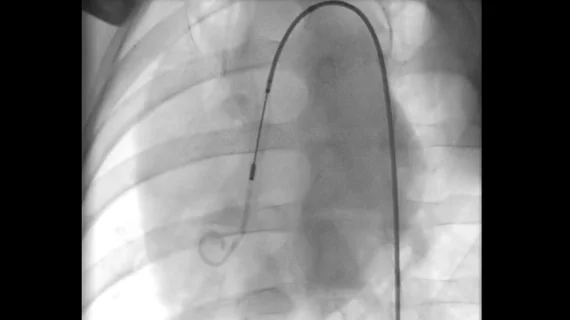Impella ECP confirmed to be safe for high-risk PCI—is FDA approval next?
The Impella ECP heart pump from Abiomed, part of Johnson & Johnson MedTech, is safe and effective to use during high-risk percutaneous coronary intervention (PCI) procedures, according to new data presented at TCT 2024 in Washington, D.C.
The Impella ECP is a transvalvular axial flow pump designed with pump architecture that compresses to minimize its size. It measures just 3 mm long and has long been billed as “the world’s smallest heart pump.”
For the new investigational device exemption study presented at TCT, principal investigator Amir Kaki, MD, and colleagues explored data from more than 250 patients recruited at 18 sites throughout the United States. The study’s primary endpoint, major adverse cardiac and cerebrovascular events after 30 days, was 6.3%, much lower than the pre-defined performance goal of 24.4%.
“The study met its prespecified 30-day primary endpoint with low complication rates and the 9Fr arterial access enabled a high success rate closing with an 8Fr Angio-Seal,” Kaki, an interventional cardiologist and director of mechanical circulatory support and complex coronary intervention for Henry Ford St. John Hospital and Medical Center, said in a prepared statement. “Impella ECP technology with small-bore access and closure offers benefits for patients and physicians.”
FDA approval could be on the horizon
Abiomed received the FDA’s breakthrough device designation for the device back in August 2021, more than a year before it was acquired by Johnson & Johnson for $16.6 billion. The FDA made its decision after reviewing clinical data from the first 21 patients to receive the Impella ECP.
The next step for Abiomed and Johnson & Johnson MedTech involves submitting to the FDA for full approval of the Impella ECP.

